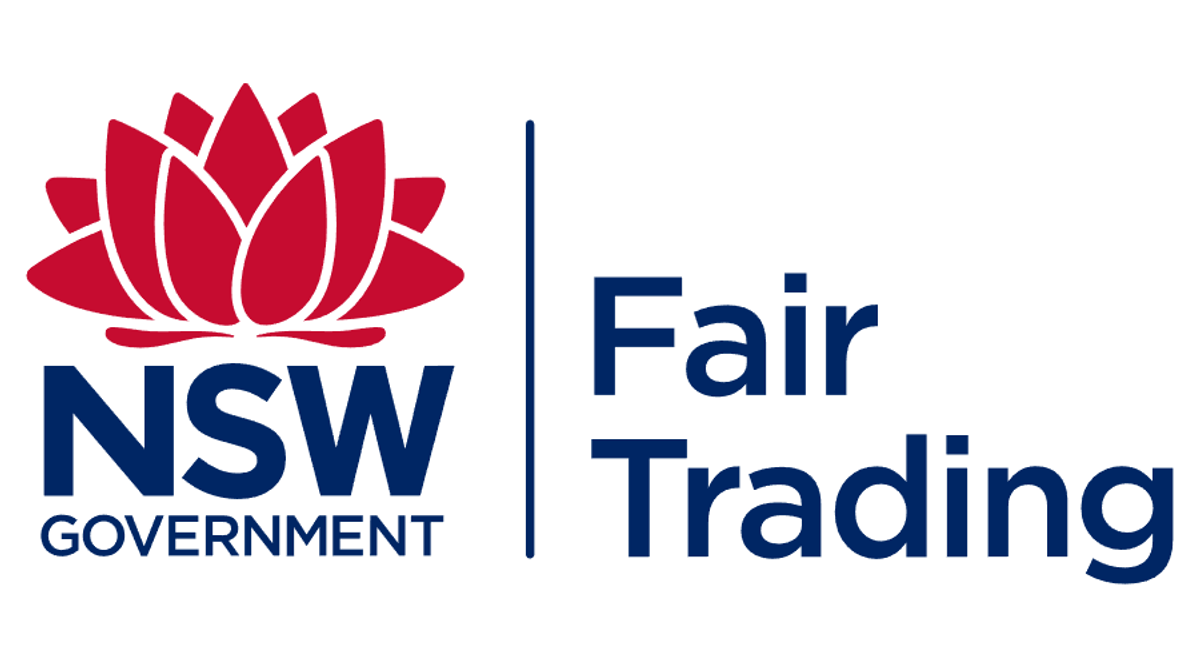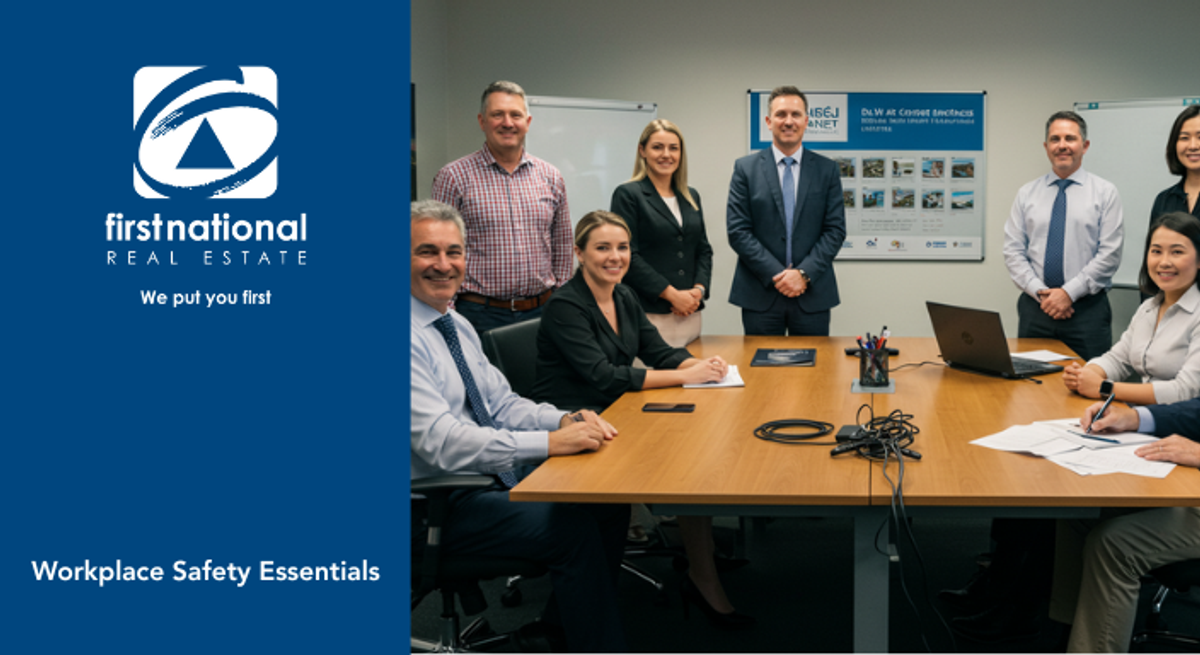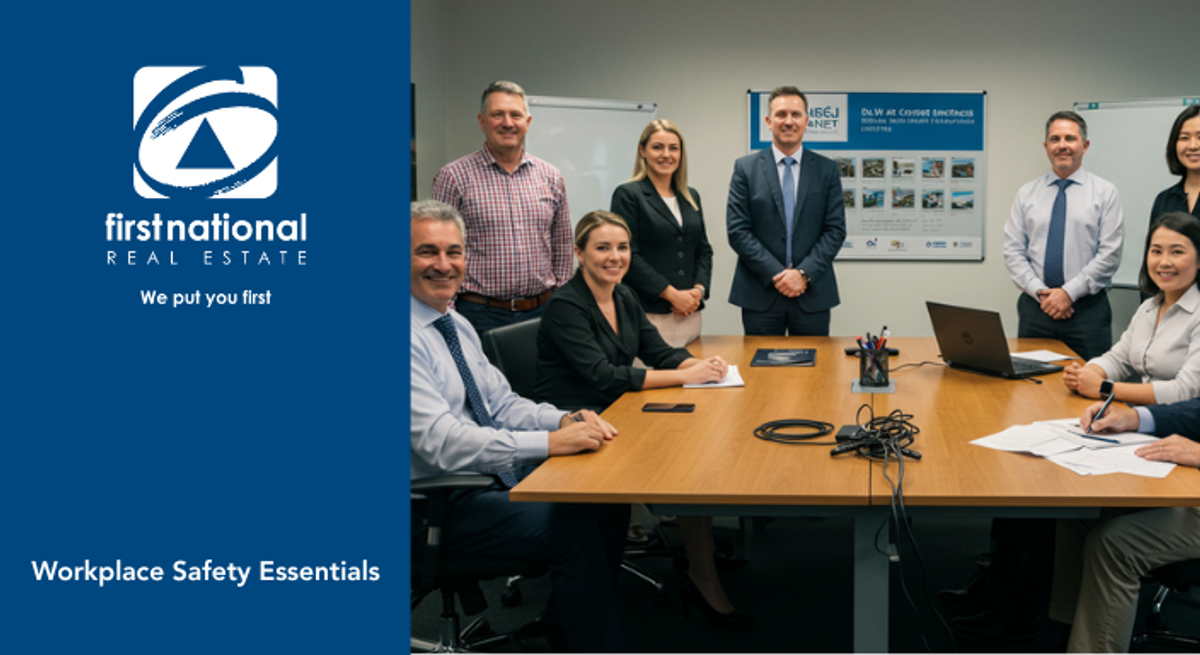Learning & Development

Focusing on what will lift performance in 2026
👓 0.3 minute read
We’re well on the way with planning the 2026 learning calendar. Over recent weeks, we’ve met with most Regional Councils to discuss what’s needed to lift business performance across the network.
We’re asking everyone to shift the conversation from “What training do we need, and which presenter should we get?” to a more strategic question – “What capability uplift will create operational excellence in our business?”
That shift focuses our investment on what genuinely improves business performance, not just what looks good on the calendar.
You might consider where the biggest gains could be made:
Strengthening leadership and coaching capability
Improving team communication or conflict resolution
Building business and office management skills
Enhancing local area marketing or lead generation
Providing targeted sales or property management training
Lifting recruitment, onboarding, and retention practices
Here are some questions to discuss with your team:
Where are we consistently falling short of our own standards?
What skills or habits would make the biggest difference to our results?
What parts of the business feel reactive instead of well-planned?
Where do we rely on a few individuals instead of strong systems?
How confident are new starters in performing to our expectations within
their first 90 days?
This is your opportunity to shape learning that your business actually needs. Talk to your Regional Council representatives or contact Trevor Maher at NSO if you’d like to discuss ideas further.
Our goal is to design learning that delivers real outcomes – practical hints, tools, and repeatable processes that improve operational excellence and ensure the skills taught are transferred into daily practice. That’s how we increase both team capability and your return on investment.
New Domestic Violence (DV) responsibilities for PMs in NSW
👓 0.3 minute read
Major changes are proposed for tenants experiencing domestic violence in NSW. Below is a summary of changes that are anticipated to become law in 2026:
1. Liability for Property Damage and Rental Bonds
- A tenant is not vicariously responsible to the landlord for any act or omission committed by a co-tenant or any other person lawfully on the premises if:
- the act or omission is considered domestic abuse that results in damage to the residential premises, and
- the tenant is not the alleged perpetrator of the domestic abuse.
- The Civil and Administrative Tribunal (the Tribunal) retains the power to make an order determining liability for damage caused by an act or omission related to domestic abuse.
- The Bill provides for the circumstances in which a former tenant may request that the remaining tenants of a residential tenancy agreement pay an equal amount of the rental bond that was previously paid by the former tenant.
2. Termination of Tenancy Due to Domestic Violence
The Bill introduces specific provisions relating to terminations of tenancies in circumstances of domestic violence.
- The Bill sets out the requirements and circumstances for a tenant giving a termination notice to a landlord due to alleged domestic abuse against the tenant or a dependent child.
- The categories of competent persons who can provide a declaration that a tenant or their dependent child is a victim of domestic abuse have been clarified and expanded.
- Landlord Notification to Remaining Tenants: A landlord who receives a domestic violence termination notice is required to give each other tenant written notice of that termination notice, subject to specified requirements.
- Temporary Rent Adjustment: Provision is made for a temporary rent adjustment for the tenants who remain if another tenant's tenancy is terminated because of a domestic violence termination notice.
Confidentiality and Misuse of Information:
- The Bill introduces an offence prohibiting the use or disclosure of information contained in relevant documents relating to domestic violence terminations, except in certain circumstances.
- A person must ensure that these relevant documents are stored and disposed of securely.
3. Access, Photography, and Visual Recordings
The Bill clarifies when a landlord may access premises to take photos or visual recordings and imposes safeguards on their publication.
Access for Advertising:
- Landlords may only access residential premises to take photographs or make visual recordings for the purpose of advertising the premises for sale or lease once during the 28-day period before the premises are advertised or before the termination of the tenant’s lease, provided notice is given.
Tenant Possessions and Notice:
- A landlord must not take photographs or make visual recordings of the premises during a tenancy agreement if those images will be published, unless the tenant has been given 7 days notice and an opportunity to move their or their dependent child’s possessions.
Publication and Consent:
- Landlords are required to give the tenant a copy of the photographs or visual recordings proposed for publication free of charge.
- If a tenant is given the proposed photograph or recording but does not provide a written response within 7 days, they are taken to have refused consent to the publication.
- The Bill clarifies the circumstances in which a tenant may refuse consent, particularly if domestic abuse is alleged against the tenant or their dependent child.
4. Residential Tenancy Databases (Blacklisting)
The reforms strengthen confidentiality and provide significant protections regarding the listing of tenants who have experienced domestic violence.
Offences Related to Listing Excluded Information:
- It is an offence for a landlord to list information in a residential tenancy database (excluded information) if that information is personal information about a person who terminated a tenancy due to domestic abuse or who alleges domestic abuse during the tenancy.
- It is also an offence for a landlord or agent of a landlord to fail to give written notice to the database operator, requiring the operator to remove the excluded information.
- These offences carry a maximum penalty of 50 penalty units for an individual, or 200 penalty units otherwise.
- If excluded information is not removed, the Secretary may issue a written order directing the database operator to remove it.
5. Changes to Locks and Security
- The landlord or tenant must not change locks at residential premises except in specific circumstances.
- Requirements that a tenant must meet if they change locks without the agreement of the landlord are specified.
- The Tribunal is empowered to make various orders concerning the security of residential premises upon application by the landlord or the tenant.
NSW Fair Trading webinar
👓 0.3 minute read
NSW Rental Commissioner Trina Jones will soon present a webinar concerning new measures to protect renters experiencing DV. The Residential Tenancies Amendment (Domestic Violence Reform) Bill 2025 passed Parliament on October 22nd.
Key topics will include:
a summary of the reform details to build awareness of the changes
practical guidance on what the changes mean for you
an update on other reforms in the pipeline.
Event details:
Date: Tuesday 11 November 2025
Time: 1:00pm – 2:00pm
Location: Online
Register here
Portals adopt fixed pricing in rent bidding crackdown
👓 0.3 minute read
REA Group and Domain have updated their platforms in cooperation with Consumer Affairs Victoria (CAV) so that all Victorian real estate agents cannot list rental vacancies without a fixed price. The move is intended to increase transparency for renters and to help agents stay on the right side of the law.
First National's Workplace Health & Safety programme – People First at First National
Every two weeks we’re sending your team a bite-sized eLearning module that includes an editable policy. Just review, sign, and file it at your office. We’ll remind you which training to complete and the matching policy to review.
Adrian, from our Workplace Health and Safety platform explains what you need to do. Nominate a member of your team to be your Learning Influencer. They will:
- Confirm every staff member has an individual FN Central login
- Schedule each 10-minute module (over the next six months)
- Click here to find out how you assign a learning Influencer on FN Central
Module 10: Customer & Office Visitor Safety
👓 0.3 minute read
First National’s Customer & Office Visitor Safety module outlines how to manage customer and visitor safety within your office and during on-site activities.
▶ 10 Min Module: Customer & Office Visitor Safety
▶ Download & Sign the Policy: Editable PDF
▶ File the signed policy as part of your WHS records
Module 9: Workplace bullying prevention and response
👓 0.3 minute read
First National’s Workplace Bullying Prevention & Response module is designed to raise awareness, build understanding, and equip participants with the tools to prevent and address bullying behaviours in the workplace.
▶ 10 Min Module: Workplace Bullying & Response
▶ Download & Sign the Policy: Editable PDF
▶ File the signed policy as part of your WHS records
Module 8: Drugs and alcohol in the workplace
👓 0.3 minute read
First National’s Drugs & Alcohol in the Workplace module raises awareness, understanding of the impacts, and promotes safe practices related to drug and alcohol use in the workplace.
▶ 10 Min Module: Drugs & Alcohol in the Workplace
▶ Download & Sign the Policy: Editable PDF
▶ File the signed policy as part of your WHS records
Module 7: Working alone, after hours
👓 0.3 minute read
First National’s Working Alone After Hours module highlights the risks and safety measures for working alone or outside regular hours. It covers hazard awareness, emergency procedures, and best practices to ensure personal safety and security.
▶ 10 Min Module: Working Alone After Hours
▶ Download & Sign the Policy: Editable PDF
▶ File the signed policy as part of your WHS records
Module 6: Sexual Harassment Prevention & Awareness
👓 0.2 minute read
First National’s Sexual Harassment Prevention & Awareness Guide is designed to assure your business meets heightened Respect At Work amendments
▶ 10 Min Module: Sexual Harassment Prevention & Awareness Module
▶ Download & Sign the Policy: Editable PDF
▶ File the signed policy as part of your WHS records
Module 5 – Equal Employment Opportunities
📹 10-minute video module
First National’s Equal Employment Opportunities training module promotes physical and mental wellbeing in the workplace. It covers stress management, healthy work habits, and strategies to create a supportive and productive work environment.
▶ Module: Equal Employment Opportunities
▶ Policy: Editable PDF
▶ File the signed policy as part of your WHS records
Module 4 – Workplace Health & Wellbeing
📹 10-minute video module
First National’s Workplace Health and Wellbeing training module promotes physical and mental wellbeing in the workplace. It covers stress management, healthy work habits, and strategies to create a supportive and productive work environment.
▶ Module: Workplace Health and Wellbeing
▶ Policy: Editable PDF
▶ File the signed policy as part of your WHS records
Module 3 – Safety Essentials
📹 10-minute video module
First National’s Safety Essentials training module covers fundamental safety practices to reduce risks and create a safer work environment. Learn key safety principles, hazard awareness, and best practices for workplace safety.
▶ File the signed policy as part of your WHS records
Module 2 - Behavioural Safety
📹 10-minute video module
First National’s Behavioural Safety training module is now live on the Learning Hub as part of our ongoing WHS programme. This module is designed to help your team recognise and address unsafe behaviours before they lead to incidents - reinforcing our commitment to a culture of proactive safety.
▶ File the signed policy as part of your WHS records
To support implementation, use the Step Guide and Coaching Guide available on the Learning Hub. These tools will help you set up clear safety procedures in your office - protecting your team and your clients.
Module 1: Workplace Health & Safety
📹 10-minute video module
▶ Module: Workplace Health & Safety▶ Policy: Editable PDF▶ File the signed policy as part of your WHS records
Signed policies + module completion = confidence you're meeting your responsibilities.
Upcoming professional development opportunities
FN Commercial Conference: Sydney 19-20 November
ONLINE
Upcoming professional development opportunities
What: Finance Accelerator Series: Financial Risk Management (Session Four)
When: 6 November 2025 2:00 pm to 3:00 pm AEDT
Where: National Zoom Webinar
Register: Click here
What: Property Management Accelerator Series: Ending a Tenancy (Session Five)
When: 13 November 2025 2:00 pm to 3:00 pm AEDT
Where: National Zoom Webinar
Register: Click here
What: Finance Accelerator Series: Personal Financial Wellness (Session Five)
When: 2 December 2025 2:00 pm to 3:00 pm AEDT
Where: National Zoom Webinar
Register: Click here
What: Recap and Overview of the Commercial Marketplace (Session Five)
When: 4 December 2025 1:00 pm to 3:00 pm AEDT
Where: National Zoom Webinar
Register: Click here














